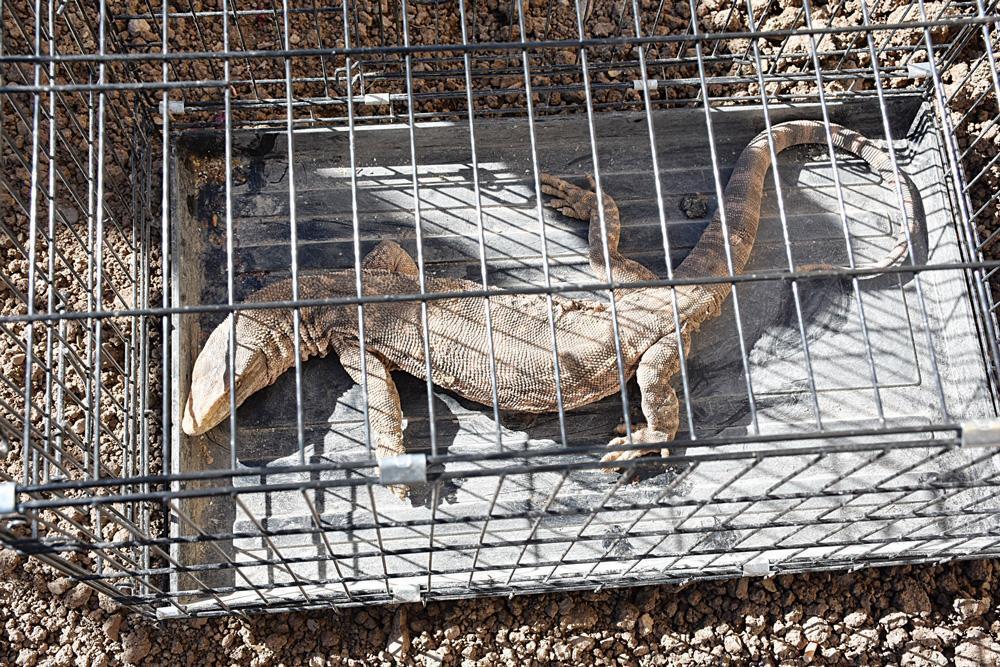Endangered reptile released back into wild in Turkey’s Cizre
ANKARA – Anadolu Agency

A “desert monitor,” which is believed to be the biggest reptile living in Turkey, has been released back into the wild after being found last week by locals in the eastern province of Cizre.
According to a written statement made by the Ministry of Forestry and Water Affairs, the desert monitor, also known as the giant lizard, was found during excavation works in the village of Girikova last week. It was treated by the Directorate General for Nature Conversation and National Parks (DKMP) before it was released back into its natural habitat.
Informed by villagers about the reptile, DKMP teams went to the area to catch it and took it to Şırnak for a veterinary check-up.
The reptile, whose species is currently under threat of extinction, was released into its habitat after heath checks. As soon as it was released the desert monitor disappeared into one of the holes among the rocks in the area.
Examining the area, DKMP teams found up to 25 holes, believed to be the nests of desert monitors, over an area of up to six decares.
Desert monitors mostly live in parts of the southeastern Turkish provinces of Şırnak and Şanlıurfa near the Iraqi and Syrian borders.
Region to be monitored
DKMP teams have informed locals in the village of Girikova and others in the area about the desert monitor, warning about the importance of acting sensitively toward wildlife.
Motion-triggered cameras will also be places in areas where the desert monitors are thought to live, in order to better monitor and protect wildlife.
Forestry and Water Affairs Minister Veysel Eroğlu said desert monitors in Turkey can be found only in the eastern provinces of Şanlıurfa and Şırnak.
“The biggest reptile in our country, the desert monitor, is sometimes killed by people because it has a frightening appearance. So we thank the local people who found this animal and informed us about it without damaging it,” Eroğlu said.
“Contrary to general belief, this reptile is non-poisonous and only feeds on other reptiles, birds, insects and their eggs,” he added.
Eroğlu also noted that those found guilty of killing or selling species such as the desert monitor are likely to face heavy fines.
















